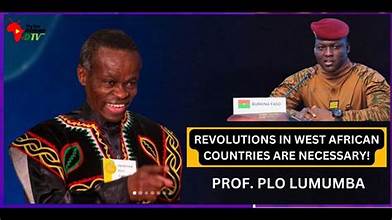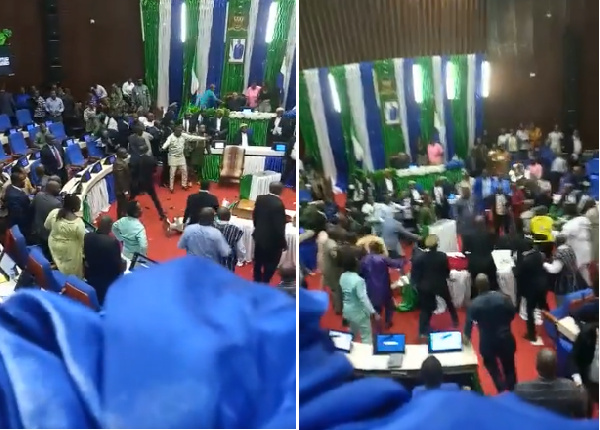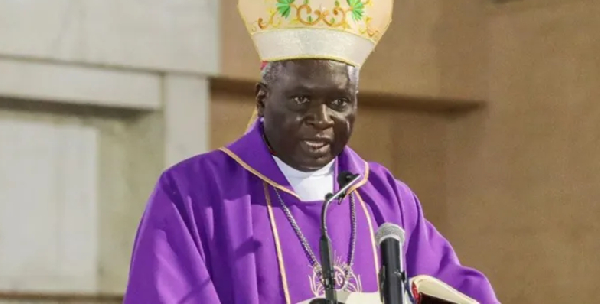News Africa
Lumumba resonates with Russia’s Geopolitics, education and media

During the Soviet times, Patrice Lumumba resonated with Soviet’s propaganda especially in Africa. It was closely linked with educational institution for educating and training of specialists for Africa’s development and economic growth. Thousands of young African specialists were trained and educated at the Patrice Lumumba University named after the Congolese leader Patrice Lumumba, and that practice continues until today. Established in 1960, it primarily provided higher education to Third World students during the Soviet days.
After the collapse of the Soviet Union, the name of the Congolese leader, Patrice Lumumba, was removed. But that was fixed back in April 2023 to influence African leaders to attend the second Russia-Africa summit. It is Russia’s most multidisciplinary university, which boasts the largest number of foreign students and offers various academic disciplines.
With heightening of a new geopolitical architecture, the rapidly changing multilateral relations which guarantees an emerging multipolar world, Russia has been exploring attractive mechanisms and instruments to influence public perceptions and to establish foothold across Africa.
Lumumba has indeed become Russian brand. African students in any part of Russia, it could be in a shopping mall, cultural park or even in a street, are referred to as Lumumba. Early October 2024, after serious negotiations Russia Today (RT) decided to hired a Kenyan Professor Lumumba to boost its media among African and global audience. It has launched an African TV programme which the host Lumumba will explore the history, challenges, and opportunities of the continent for its millions of viewers and listeners.
The latest Africa show to premiere on Russia Today titled ‘Lumumba’s Africa’, which will delve into past and present issues affecting the continent. Filmed in Kenya, the program is aired globally since October 3, 2024. In addition to the English-language RT International channel, the show will be broadcast in French and Arabic.
Hosted by Professor Patrick Loch Otieno Lumumba – a celebrated scholar, author, and former director of Kenya’s Anti-Corruption Commission and the Kenya School of Law – the show will spotlight Pan-Africanism and the pursuit of African-led solutions to the continent’s challenges. Lumumba is a Kenyan lawyer, and social and political activist who graduated with law degrees from University of Nairobi and from the University of Ghent in Belgium. His Ph.D thesis is entitled Exclusive Economic Zone, the Use Delimitation of Economic Zones. Lumumba has been growing in his profession traveling across Africa, and his estimated net worth stands about $5 million.
“The history of Africa has always been told by others, and when one looks at the media, one sees a very negative depiction of Africa,” Professor Lumumba said, commenting on the significance of his new role to the channel Russia Today. “Via this platform that we’ll have through RT, we have an opportunity to showcase Africa that is not heaven, but it is not hell. My motivation with this show is to demonstrate that Africans are a people with a history, we are people with a purpose, we are people with conviction.”
According the RT media report, ‘Lumumba’s Africa’ will explore various themes relevant to modern Africa: why certain economies on the continent succeed while others falter, the roots of conflicts and their lasting impact, and the enduring influence of colonialism on Africa’s progress. The show will pose critical questions, and will ask if colonialism has been truly eradicated, or if its remnants continue to hinder Africa’s future.
“Professor Lumumba is recognized and respected across all of Africa,” said Anna Belkina, RT’s deputy editor-in-chief. “We are excited to bring Professor Lumumba’s unique and compelling perspective to RT’s audiences worldwide, and with it to continue debunking colonialist narratives about Africa that remain pervasive in the Western mainstream media.”
The RT report further indicated that Lumumba joined a prestigious list of RT hosts, past and present, including former Ecuadorian President Rafael Correa, late broadcasting legend Larry King, WikiLeaks founder Julian Assange, Pulitzer Prize winner and Emmy-nominated journalist Chris Hedges, and former First Minister of Scotland Alex Salmond, among others.
Professor Patrick Loch Otieno Lumumba featured in two episodes of ‘Lumumba’s Africa’, where he delved into key issues affecting the future of the continent. Lumumba talked about the relevance of Pan-Africanism in the modern era during the first episode, ‘PanAfricanism – is it still relevant?’ The second episode, ‘Common African currency’, was followed by a discussion on how a unified African currency could help combat economic manipulation and international financial fraud.
In today’s academic world, Professor Lumumba has been exceptionally one of the highly qualified academics, utilizing the power of modern media to drive political concepts such pan-Africanism, a well-refined politics without muc western inference, and the ability to create grassroots prosperity, especially in the context of transformative capabilities based the available untapped resources in the African world. Lumumba has fierce criticized majority of African leaders who stuck in ancient mentalities of dependence on western political concepts, engulfed with foreign debts through excessive borrowing from multinational financial institutions while their economy still stagnates and leaves the population in abject poverty.
Lumumba encouraged African leaders to rise to the challenge of changing the fortunes of the continent. Through his lectures, he preaches new models of education that should be related to employment, emphasizes proven performance and impactful productivity, and internal economic growth that has to be achieved on a grand scale within the framework of a new mindset for advancements. In a nutshell, Lumumba’s revolutionary ideas are focused on practical transformations in multifaceted economic sectors, and based on aspects of the African Union Agenda 2063: The Africa We Want, and for continental Africa.
Source: Thepressradio.com|Kestér Kenn Klomegâh





